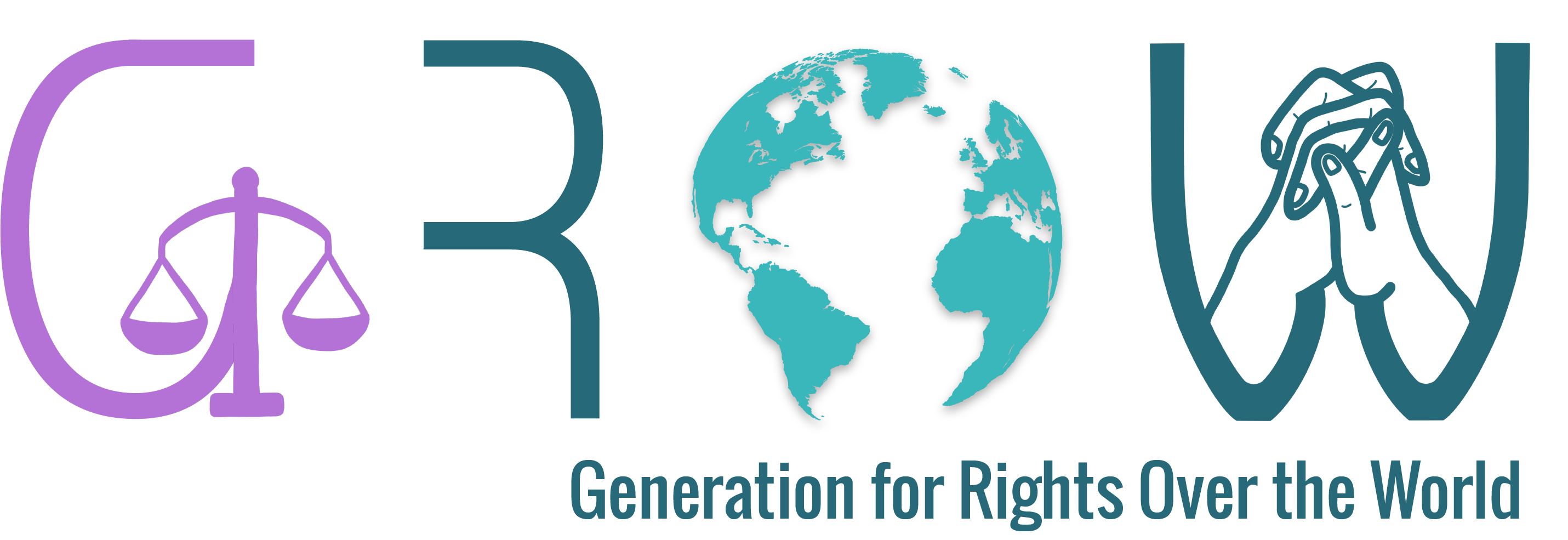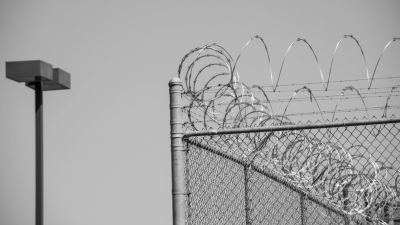In this article, I will try to tell you about this decision that I made 3 years ago. I will try to share my experience and to answer the questions that such a decision may raise. Please know that this is my personal experience and that every woman has her own story. I will try to be as honest as possible, to tell you about my spiritual journey, my vision of feminism or even to give my opinion on the debates that are currently being conducted in France. I repeat, this is my personal opinion and I do not in any way represent the voice of all veiled women in France, they are so unique and have their own conception of things. I hope that my testimony will provide you with answers or allow you to better understand this choice which may seem to some people totally incomprehensible.
I made the decision to wear a hijab on January 3, 2018, the day of my birthday, when I just turned 19. It was not a hasty decision, far from it, but rather the result of a long spiritual journey. I started questioning myself about my religion, about my practice of Islam as a teenager, around the age of 13-14. I have known many times when you could tell my faith was on the decline. I continued to believe in God of course, but for example I had stopped praying, I was doing Ramadan more out of habit and mimicry, without really realizing its religious importance and all that it involved, it is more than just refraining from eating and drinking from sunrise to sunset. All my practice was in fact the heritage of what I saw in my family, I did things because “they had to be done”, without really being interested in the reasons for these practices, without trying to understand what the Koran or the Sunnah could say on such and such a subject. It was only around the age of 18 that I really started to take an interest in my religion, and following this quest to get closer to God, the question of the hijab arose. This is a subject that I had never discussed with my mother or even my aunts who wear it. I received no pressure, direct or indirect, to wear the hijab. It is a choice that I made with all my conscience and above all freely. I do not have a father, I am not married and I have a little brother, if I allow myself to say that, it is because we are too inclined (especially in the media) to think that if a woman decides to cover up, it is because she has been asked to do so, and that generally behind this decision hides a man’s. I am not saying that there are no women who are forced to wear it, it does exist, but it is a minority and that for the majority of veiled women it is a choice staff.
Again, I can understand that this choice may seem confusing to some people. But you should know that the hijab is part of the daily life of a Muslim, that when she prays, she wears the hijab (then takes it off if she does not wear it), that some women / girls see their mothers or their grandmothers still wear this hijab, so it’s not something foreign. Not to mention the religious aspect, which I would like to address in the next few lines in order to understand what Islam says. First of all, when we want to know whether a practice is legislated or not, we refer to two sources: the Koran and the prophetic tradition (the Sunnah). As for the question of the hijab, many and many scholars have looked into the question and concluded that the wearing of the hijab was compulsory in Islam for all pubescent women, and, to arrive at this conclusion, here are their main arguments. In the Kuran, Surah 24 verse 30-31, it is said:
“30. O Prophet! Tell the believing men to lower their gaze and guard their chastity. That is purer for them. Surely Allah is All-Aware of what they do.
31. And tell the believing women to lower their gaze and guard their chastity, and not to reveal their adornments except what normally appears. Let them draw their hijabs over their chests, and not reveal their hidden adornments except to their husbands, their fathers, their fathers-in-law, their sons, their stepsons, their brothers, their brothers’ sons or sisters’ sons, their fellow women, those bond women in their possession, male attendants with no desire, or children who are still unaware of women’s nakedness. Let them not stomp their feet, drawing attention to their hidden adornments. Turn to Allah in repentance all together, O believers, so that you may be successful.”
“In this verse, God commands women to pull down their khimar hijab over their breasts. The “khimar” of the woman meaning in the language of the Arabs what covers her head. The scholar al-Fayyumi says in “al-misbah al-mounir”: “al-khimar” is a garment that a woman uses to cover her head. The plural is: khoumour”. The term “jouyoub” being the plural of “jayb” which corresponds to the breast. The verse therefore expresses its aim in the most explicit way because the expression “to fold back the hijab (which covers the head)” khimar “on the chest” implies the fact of covering the hair, the neck and the upper part of the body. Chest “nahr”. And the fact of saying to fold it back on the chest instead of folding it over the face implies at the same time the revealing of the face.”1 So if we refer to the Koranic text as well as to the prophetic tradition, scholars agree that the hijab is an obligation. However, it is not because it is an obligation, that it should be imposed on the woman, because as the Koran says, “no compulsion in religion” (Surah 2, verse 256). If the latter does not wear it, she cannot be considered a bad Muslim, because again this is a personal choice, which should not be made under duress. All the more so, since it is not because a woman wears the hijab that this makes her a good Muslim, and that the latter is pious because as it is often said: “clothes do not make the man”.
I would like to end my testimony with two questions that I was asked, the first was whether the hijab could not be considered a regression of the condition of women. Indeed, in the past, many women campaigned to be able to take it off and finally be free, and here I am, telling you that I decided to wear the headscarf on my own. This situation may seem disconcerting at first, and I fully understand that one can be. However, there is a fundamental difference between these two situations, and this difference can be summed up in one word: freedom. These women were forced to dress this way, it was not a voluntary choice on their part. And through this fight, it is in reality an even more noble fight that they were leading, namely that of disposing of their bodies as they wish, of being able to dress as they wish without anyone telling them otherwise, imposing a way of dressing. And strangely I claim the same thing. I want to be given the opportunity to dress as I see fit, in this case, I would like to be allowed to wear the hijab freely, and especially that people understand that I am not subject to anyone, that it is about my freedom. I consider myself a pro-choice feminist. I consider that every woman has the right to enjoy her body as she sees fit. If a woman wants to put on a miniskirt she does, if another decides to wear pants she wears them, and the same goes for a veiled woman. If the latter decides to wear it freely, so be it. As I respect the way every woman dresses, I want mine to be respected.
However, in recent years with the media obsession with the issue of the hijab, the idea of thinking that a woman decides to hijab herself freely, and that her decision should be respected is an idea that is less and less understandable. We hear some people speak for us and explain to us that no, we are not free to wear this hijab, that our outfit is not in accordance with the republican values, or that our way of dressing would not be in line with the principles of secularism. And little by little, we fall into what we can call a special form of secularism2. In addition, the current context tends more and more to essentialize veiled women, to reduce them to their hijab. Sometimes I have this feeling that the first thing you see about me is my hijab, and I am reduced to it. It’s like a part of my identity is being denied. When I made the decision to wear it, I knew that it was not going to be simple. As I said above, this decision is the result of a religious journey but also of questioning, especially in relation to society and those around me. I wondered how my relatives were going to take it? How would that be at the school level but also to work later. Because, in addition to being a woman, I am a veiled woman. All these questions, this fear of the gaze, of the judgment of the other, were also part of my reflection. Sometimes I feel like I have to do more, like I have to prove more. I also sometimes tend unconsciously to pay more attention to what I do, what I say, but also how I behave, because I feel like “a representative” of the Muslim community. But as I said, this behavior is done unconsciously, in response to the current climate in France. This brings me to the second question that was put to me, and I will conclude on that. The question was whether the hijab is not a risk of creating animosity towards the Muslim community, in a society in which we denounce and fear communitarianism. To be honest with you, I have thought about this for a long time, and I believe that it is not the hijab as such that causes the most harm to the Muslim community but all this media frenzy with debates playing on the fear of “religious communitarianism”, this idea that Muslims do not want to integrate and that they could harm the unity of the nation. What I denounce is that in many debates, we tend too often to forget that the vast majority of veiled women are French, they are part of the French community, they respect republican laws and that for the overwhelming majority, they do not represent, well we do not represent, a danger for France. We are part of the French community. It is becoming more and more dangerous to make amalgamations between the hijab and communitarianism, because this causes and nourishes the fear of the other, and therefore, this communitarianism that we are so trying to avoid. Have you ever wondered what a veiled woman might feel when she turns on the television and sees that there are more than 90 debates around this choice she made, and that she is explained that this hijab that she wears, and which is an integral part of her identity, is not desirable in France? Not to mention a person who is not a Muslim, and who also turns on his TV, and faces the same debates, where it is suggested that the hijab is a problem in France. The latter may, without realizing it, equate the veiled Muslim woman with a person who does not wish to integrate in France, and who may represent a danger. I honestly think it is high time we stop fueling the debate and understand that all these women are more than that, and that they cannot be reduced to this scarf. You have to understand that just because a woman decides to wear the hijab her personality does not change, she always remains the same inside. This choice in no way negates who she is and it does not prevent her from thinking, she is always the same, except she wears a hijab on her head. A hijab which, for the great majority of them, is a choice made in true conscience and which is the result of a personal religious journey.
I hope this article has answered some of your questions, thank you for taking the time to read my testimony.
Translated by Romane Piechota & Iman Seepersad.
| ↑1 | ABDELMONAÏM BOUSSENNA. (2019). Le voile est-il obligatoire en Islam ? Youtube.com. [Online] Available at: https://www.youtube.com/watch?v=vDH4kWUVG1E [Accessed 4 Nov. 2019]. |
|---|---|
| ↑2 | Gradually prohibiting all religious manifestations in public spaces, because religion must remain in the private sphere. |








Merci pour votre témoignage Shérine et pour vos réponses claires et instructives. Je m’en rappellerai désormais chaque fois que je croiserai une femme voilée.
Je suis vraiment du même avis que toi. Moi j‘ai 28 ans, auditrice de formation, parlant couramment 5 langues, ayant travaillé dans un bigfour bref.. tout ça pour te dire que je trouve cela vraiment incroyable qu‘on réduise toutes les compétences d’une femme à un morceau de tissus qu‘elle porte sur la tête.. Je ne sais pas, j‘ai vraiment du mal à comprendre..
Après, il est vrai qu‘une personne confrontée aux médias semeur de haine, aura forcément du mal à garder son esprit critique envers le débat..
Moi j‘ai décidé de me voiler parce que je trouve que ca devient carément une necessité à une époque où à cause des réseaux sociaux, surtout Instagram, les femmes sont devenues complexées, voire deprimées, où le corps de la femme, en permanence erotisé, n‘a plus aucune valeur, mais aucune…
2 décembre 2021. Mlle, Mme, je viens de lire votre récit non pas par hasard mais votre cas se trouve au sein de ma famille. Ma petite fille âgée de 18 ans porte le voile depuis trois semaines. Ce n’est pas le fait d’avoir des religions différentes qui me chagrine, ni qu’elle soit musulmane ou que maintenant elle porte le voile en dehors de son domicile: C’est que sa foi lui dicte ses initiatives et son nouveau comportement à l’égard de sa maman sont difficiles à admettre au regard de ce qu’elle était quelques mois plutôt. De longues lignes me seraient utiles pour vous parler de cette situation. Je me permets de vous préciser ce que représente pour moi le port du voile “tout en respectant votre vie et votre décision” en tant que grand père. j’ai peur et j’espère me tromper sur ce que sera l’avenir pour ces femmes et en particulier ma petite fille qui portent le voile. C’est pour moi, une forme de soumission qui prend ou qui a pris forme suite à la lecture de certains ouvrages, de fréquentations, de discours religieux et peut être d’hommes malveillants. Ces mêmes hommes ayant des intentions bien précises sur le devenir de ces filles ou femmes. Un grand père “André”
Bonjour,
Je me permet d’adresser une réponse qui je l’espère vous convaincra.
Tout d’abord, je vais commencer par la relation mère-fille en islam : sachez que, même si la mère (ou le père) n’est pas musulman, l’islam demande à ce qu’il y est toujours un bon comportement. Je cite ceci du coran : “Et ton Seigneur t’a ordonné de n’adorer que Lui et d’être bienfaisant envers tes parents”(Le voyage nocturne, 23) ; “Et si tous deux te forcent à M’associer ce dont tu n’as aucune connaissance, alors ne leur obéis pas; mais reste avec eux ici-bas de façon convenable. Et suis le sentier de celui qui se tourne vers Moi. Vers Moi, ensuite, est votre retour, et alors Je vous informerai de ce que vous faisiez”(Luqman, 15) .
Pour ce qui concerne les “hommes malveillants”, sachez que le port du voile est une prescription divine révélé dans le coran qui a pour objectif principal de dissimuler le corps des femmes afin qu’elles ne soient pas confrontés à des pervers (entre autres). C’est surtout pour protéger la femme. De nos jours, et surtout en ce moment, il y a énormément d’harcélement sexuel, surtout auprès de femmes qui n’ont rien demandé et qui sont souvent victimes.
La soumission n’est qu’à Dieu, rassurez-vous.
Essayez de discuter avec elle et de comprendre en profondeur le choix de votre petite fille, mais sachez que cette injonction divine n’est là que pour protéger la femme des gens pervers entre autres. Généralement, les femmes qui décident de le mettre se sentent bien avec !
J’espère avoir répondu comme il le fallait.
En quoi c’est un signe de soumission si c’est un choix personnel dicté par sa foi ?
Bonjour,
Je suis moi même convertie et voilée. Je me ferai un plaisir de vous aider si vous avez besoin que l’on discute
Bonjour, c’est une réaction de protection parfaitement respectable. Je pense la même chose de cette société où la norme est de montrer le corps de la femme pour vendre tout et n’importe quoi. On a beau se battre contre ça mais elle reste tjrs un objet!
Je suis de confession catholique et ai grandi jusqu’à mon mariage avec des principes et des valeurs que j’ai suivis par mimétisme. Puis j’ai fait mon propre tri. Ma fille s’est convertie et je lui ai dit « c’est ton choix personnel et je le respecte. Surtout sois heureuse et épanouie dans ce choix! » . Ce n’est pas tjrs facile de voir sa fille habillée presqu’exclusivement en abaya avec un voile pour sortir mais je me dis souvent que c’est ma fille et que je l’aime. Elle n’a pas changé pour autant. Je la trouve courageuse dans cette société si attachée à l’apparence, faisant si facilement des amalgames. Quand je sors avec elle je sens le regard des autres sur elle. Ça me fait de la peine et j’ai beaucoup de colère envers eux.
Après on a tjrs peur de ce qu’on ne comprend pas. Ne lâchez rien, vous jeunes filles musulmanes de confession ou converties! Votre abaya ne fait de mal à personne! Surtout n’agissez pas dans la violence!
Bonjour je suis venu ici pour mieux comprendre qu’est ce qui pousse les femmes musulmanes à se voiler mais ça m’a plus égarer qu’autre chose.
Malheureusement ce témoignage est remplie de contradiction à commencer part, “je n’ai reçu aucune pression, directe ou indirecte” et “certaines femmes/filles voient leurs mères ou encore leurs grands-mères porter ce voile, ce n’est donc pas quelques chose d’étranger”, si le voile fait parti du paysage, il y a forcément un phénomène d’influence familiale ou de pression indirecte. Ou encore “les savants s’accordent à dire que le voile est une obligation. Cependant ce n’est pas parce que c’est une obligation, qu’il doit être imposé à la femme” là pas besoin de développer, en une phrase on a une parfaite contradiction. (un dernier détail avec l’utilisation des pronoms “iel” qui est la signature des progressistes/wokes/lgbtq++ et j’en passe, ces idéologies ne sont en rien compatibles avec une religion comme l’islam donc encore une contradiction).
De plus cet article ne répond à aucun moment à la problématique posé, car dans “pourquoi j’ai décider de porter le voile” la réponse est bien dans le rapport personnel et intime avec ce voile et ce fameux “long questionnement et cheminement de pensée religieuse” or elle parle de tout sauf de ça à croire que c’est bien par mimétisme comme elle l’a dit plus tôt ou par une influence indirecte notamment de se sentir appartenir à un groupe à une communauté, ce qui fini en communautarisme il n’y a qu’à lire ses mots “je me sens comme « une représentante » de la communauté musulmane”.
Elle parle essentiellement des réactions que ça suscite, à croire que porter le voile est au final plus pour attirer l’attention qu’autre chose, ce qui est totalement l’inverse de l’objectif initial.
c’est la que je ne comprends pas bien l’utilisation du voile, d’un côté on dit que quand c’est pas imposé c’est donc un choix personnel.
Enfin dans “Cependant ces dernières années avec l’obsession médiatique sur la question du voile, l’idée de penser qu’une femme décide de se voiler librement et que l’on doit respecter sa décision, est une idée qui est de moins en moins compréhensible.” si ici il est expliquer qu’il est de moins en moins compréhensible de comprendre pourquoi une femme décide de se voiler librement c’est bien à cause de témoignages comme celui ci qui n’explique en rien la décision et se cache derrière des phrases très vagues comme “longues réflexions religieuses”, Si vous voulez être comprises il va falloir être plus compréhensible et logique.
Si je me permet d’être un peu virulent dans mes propos c’est parce que vous desservez votre cause de manière inconsciente et qu’ensuite vous aller faire les victimes de la société ce qui est très agacent.
Car si vous expliquiez de manière claire vos motivations, il n’y aurait pas ou en tout cas moins d’animosités à ce sujet. Mais comme ces volontés sont trop discrètes alors les autres les trouvent pour vous, c’est pour ça qu’il faut en parler. Ou alors vos motivations sont plus sombres que vous essayez de le faire croire et donc vous vous cachez derrière une fausse position de victime.
Dans l’espoir de faire avancer le débat.
Bonne journée.
Bonjour !
Merci Shérine pour ce témoignage. Je suis personnellement catholique mais je m’interrogeais sur le port du voile des musulmanes depuis assez longtemps. N’ayant jamais entendu autre chose que « c’est parce que leur mari le veut » et n’étant personnellement pas convaincue, j’ai voulu me renseigner et je vous remercie pour votre témoignage. Je le garde en tête. Merci beaucoup ! 😊
Je ne connais pas vraiment la religion musulmane et j’avoue qu’en lisant ce texte je n’ai pas réussi à comprendre pour quelles raisons les femmes décident de porter le voile ni ce que cela représente pour elles de montrer ou de cacher leurs cheveux ?
De même, je ne comprends pas pourquoi certaines portent des vêtements et des accessoires, avec lesquels on fait facilement le lien avec la religion musulmane, dans les établissements scolaires, alors que c’est un lieu laïque, où aucune religion, quelle qu’elle soit, ne doit être “affichée” ? Ce n’est pas personnel à la religion musulmane.
J’ai l’impression que certaines femmes se sentent aujourd’hui persécutées et, en même temps, à l’époque où j’allais moi-même au lycée, aucune femme ne montrait de signe religieux. Cela ne semblait alors ne pas être un problème.
Quel que soit notre positionnement, il me semble intéressant d’essayer de se mettre à la place des autres, pour essayer de les comprendre. Et, avec ce témoignage pas assez précis sur les raisons profondes de ce choix, je n’ai pas réussi. Merci malgré tout pour la bienveillance que j’y ai ressenti.